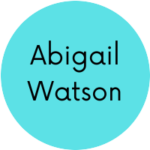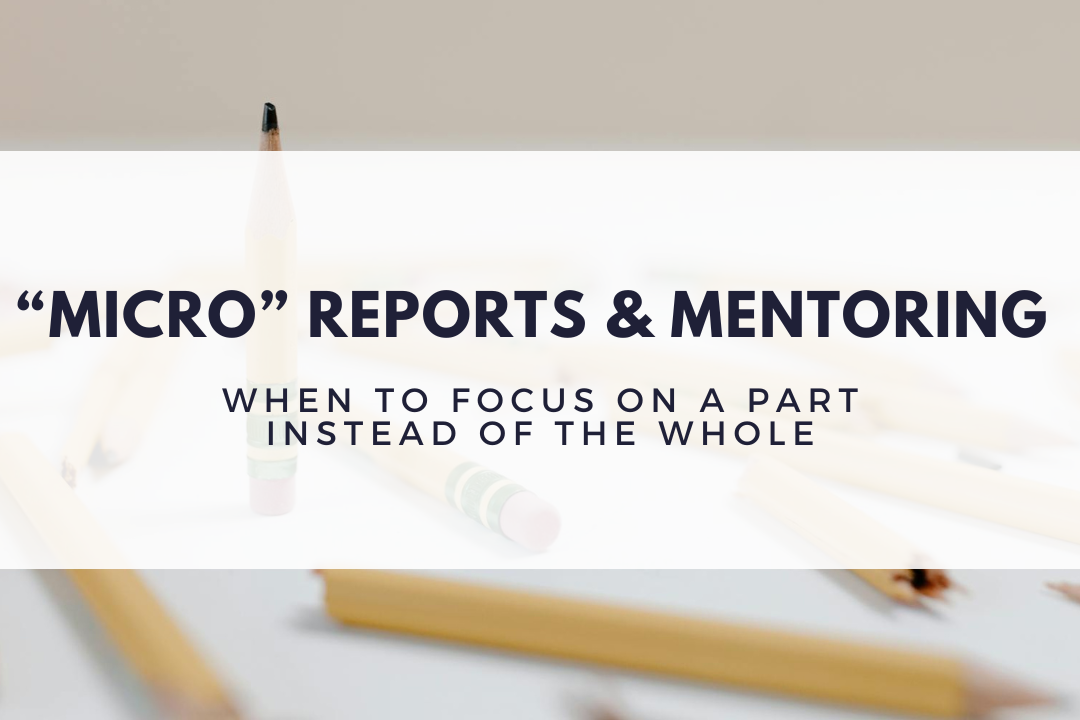Last month, we looked at the “macro” and the benefits of receiving a full manuscript assessment. However, there are also advantages to focusing on a portion of your work. In this blog post, we ask our clients why they wanted feedback on an extract instead of the whole manuscript and what they gained by getting one of our “micro” reports – the Submission Package Review or the Short Report – or by working on monthly instalments with our mentoring programme.
Submission Package Review
Why did you choose BPA?

Elizabeth Ferguson
“A friend who worked in publishing for many years sent me a few literary agents to look at. One of them was the Eve White Literary Agency, who recommend BPA on their website. When I looked at BPA, I was impressed that they had a standard to entry as well as a list of experienced editors.”

“I was at a point where I knew I had a good idea and had always been told I had a talent for writing, but this wasn’t translating at all to agents. Many would get back and say that there was something missing, or that I wasn’t quite there yet.
I felt totally deflated and isolated by rejection number one million. That same afternoon, a Google search took me to BPA.”
Why did you choose a Submission Package Review?

Elizabeth Ferguson
“To me, checking the submission was written, formatted, and presented well seemed important. The review looks at your first 15,000 words, synopsis, and cover letter. You get a detailed editorial report with general reflections from your editor and an edited copy of your work. Editing the submission felt sensible, as it is the first thing a literary agent will see. I also wanted to check the concept of the book resonated with someone in the industry.”

“I had no idea there even was a service like this for writers. It had never occurred to me that you could ‘learn’ how to write and edit, which I obviously now realise was a ridiculous thing to think. I chose the submission package review because this is exactly what I will end up sending out to agents. It seemed helpful to me to receive feedback on this content.”

Rebecca Harrington
“There was a reduced cost for unsuccessful prize entrants – which sounded like a consolation prize!”
Were you happy with your feedback?

Elizabeth Ferguson

Iain Maloney, BPA editor.
“Iain’s feedback was brilliant: thoughtful, sensitive, and knowledgeable. He was also complimentary, which opened the door to some help from BPA, so I am very grateful.”


Susan Allott, BPA editor.
“Hand on heart, best thing I ever did was submit to BPA. The feedback I received from Susan was encouraging but, more importantly, so thorough. I took massive comfort in seeing all the places I had been going wrong, as this answered my question of why I hadn’t been signed. In amongst all the chaos of my editing, she managed to totally understand my writing style and pick out moments that impressed her. All of these elements combined completely changed my writing.”

Rebecca Harrington

Lesley McDowell, BPA editor.
“Yes, it was thorough and detailed, gave examples of where research or repetition dragged down the plot, and included plenty of encouragement!”
Can you give me the top thing you learned from it?

Elizabeth Ferguson
“There are many. But mostly that there is great value in getting your work edited. The different ways people react to things tells you that your work lies somewhere in between the writing and the person reading it. It’s a good lesson in non-attachment.”

“Letting go of sentences, passages, or entire chapters if they don’t work.”

Rebecca Harrington
“To focus more on tension and plot. And that I have a ‘natural warmth’ in my writing!”
Why would you recommend getting a submission package review?

Elizabeth Ferguson
“The review gives you industry expertise. If you are trying to get a book published, there is nothing better.”

“Getting feedback on your writing is important. But it’s also important where the feedback comes from. It makes such a difference to have someone who knows what they are talking about, who writes, and who knows that the writing process is desperately sensitive and personal. Constructive feedback that still gives hope is invaluable.”

Rebecca Harrington
“Even though it was sometimes hard to read honest feedback, I can see the benefits from taking Lesley’s suggestions on board and enjoyed rising to the challenges!”
Short Report
Why did you choose a short report?

Hugh Blackthorne
“I chose a short report because I believe the opening chapters are the most important. This is because you need to hook the reader and set up the novel’s premise and stakes. This was an early draft and I wanted a second opinion because these chapters have to do a lot of heavy lifting to keep the readers turning pages. A short report includes a mark-up of my novel with inline suggested changes and comments alongside a multi-page editorial letter or report, going through where I can go deeper or revise. I also had a video call with my editor to discuss her feedback, which was truly exceptional and so worthwhile.”
Why did you choose Frances as an editor?

Hugh Blackthorne

Frances Merivale, BPA editor.
“I was given a couple of suggestions by Peggy, and I chose Frances as an expert in romance fiction as I wanted a genre expert to help me meet reader expectations.”
Did the feedback conform to your expectations?

Hugh Blackthorne
“The feedback actually went beyond expectations, given the quality and that I had feedback in three different formats (marked up manuscript, multi-page editorial letter and zoom session). It really helped me figure out a way forward with the opening pages in revisions. I felt encouraged and inspired to keep going with the draft and had direction on what to do to improve the opening.”
Why would you recommend getting a short report?

Hugh Blackthorne
“Getting expert eyes from an experienced editor in my genre makes all the difference in having a strong opener to hook readers and hopefully publishers too. I now have agent consideration of my romcom, so something is working!”
Mentoring
Why did you choose mentoring?

Reica Gray
“I like being able to submit in chunks, so that if I’m going off the rails, I’m encouraged back on track. For several years I worked at a University writing centre helping students with their draft assignments. Therefore, I know the value of good feedback. I send Emma 10 or 20K at a time and receive written feedback using Track Changes. This is followed up by a Zoom call.”

Jonathan Owrid
“It mirrored the way I like to work; having someone invested in the idea, who could help me shape the structure and plot, then review and provide feedback at each stage of its development. I knew that I had much to learn as a rookie writer and realised that working alongside someone who had completed this journey many times would keep the development of my idea on track and add to its richness.”
Are you happy with your feedback?

Jonathan Owrid

Sara Sarre, BPA founder & head editor.
“Without wanting to appear sycophantic, it’s fair to say that Sara has completely exceeded my expectations as a mentor, teacher, editor and creative partner. She has seamlessly performed 4 roles in 1. I’ve had few teachers in life who have made a big difference to the way I work, but I would include Sara in that very esteemed company.”

Ally Tamaris Eshel
“Working with Sara has been a life-changing experience. Her mentorship shaped my manuscript into a complete novel and profoundly influenced my approach to writing, transforming how I view and engage with my work.”

Reica Gray

Emma Beswetherick, BPA editor.
“I love the feedback! For example, Emma suggested an entirely new scene to get the novel started. Knowing I’ll be able to run things by her is encouraging and motivating.”
Can you give me the top thing you learned from it?

Reica Gray
“Not to ‘cut it till it bleeds’ too soon, but spend time building your world and developing your characters.”

Jonathan Owrid
“I’ve learned so much that it’s hard to rank the effects of mentorship, although one of the first things Sara said when we started out was that the job of a fiction writer is to be the lens. In hindsight, this sounds such a simple thing, but it has helped me understand the need to bring scenes to life while keeping the action flowing, critically sustaining the focus on showing rather than telling.”

Ally Tamaris Eshel
“Things I learned from Sara:
1. Writing a novel requires immense hard work and dedication.
2. A good story alone isn’t enough; the craft of writing lies in how you tell it—or, more precisely, how you show it.
3. The characters make the story; good writing makes a novel.”
How has the report affected how you now approach your work?

Reica Gray
“It’s encouraged me to try more radical rewrites, knowing I’ll soon find out whether they work!”

Jonathan Owrid
“Sara has helped me understand how to bring the reader into my thinking about how to write, which has been invaluable.”

Ally Tamaris Eshel
“Initially, I was focused on telling the story—getting the ideas and plot down on paper. However, Sara’s guidance taught me to engage with the deeper, more refined, aspects of writing, like structure, technique, character development, and language. This process shifted my perspective from simply narrating events to intentionally crafting them with the skill and awareness of a writer.”
Why would you recommend mentoring?

Reica Gray
“I know from my experience helping students that a second pair of eyes is invaluable. If you have a good mentor, follow their advice, and don’t get defensive, it’s an enjoyable and hugely beneficial process.”

Jonathan Owrid
“The process of writing involves receiving critical feedback, so the sooner you get used to the idea that not everything you pen is going to milk applause, the better. I think mentoring is a gentle yet effective way of accepting and reacting to criticism, lessening its sting without diminishing its utility.”
To sum up:
There are manifold reasons why writers may prefer to book a report that focuses uniquely on a particular section of their manuscript.
Mentoring is a bespoke service for authors who wish to revise 5,000 to 10,000 words at a time. It works best for writers who wish to be accompanied every step of the journey, learning and practising writing techniques under the expert guidance of our editors.
Alternatively, “micro” reports work best for those who want reassurance that their novel is off to a good start. Some authors choose a micro report because they are restricted financially, but learn enough from the feedback on their first chapters to apply it themselves to the rest of the novel. Others wish to perfect their opening to improve their chances of getting noticed, whether by agents or writing competitions.
Whatever the reason, professional guidance may be the boost you need to turn a “no” into a “yes”. To find out more about our reports, click here.

